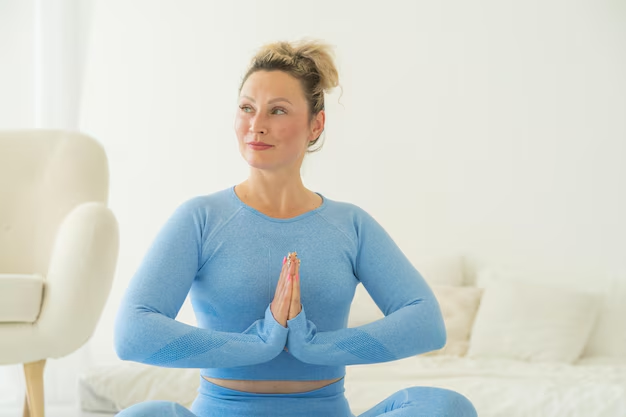Finding Calm in the Storm: Practical Steps to Manage Anxiety
Feeling anxious is a universal human experience. Whether it’s triggered by an upcoming presentation, financial concerns, or the uncertainty of our times, anxiety can take a toll on both mental and physical health. If you've found yourself asking what to do for anxiety, you've come to the right place. Understanding how to manage anxiety effectively can make all the difference. Let’s dive into actionable insights that can help you navigate through these turbulent waters.
Understanding Anxiety: More Than Just Nervousness
Anxiety isn’t just feeling nervous or worried. It's a complex emotional state that can manifest in various physical reactions and cognitive processes. While occasional anxiety is part of life, when it becomes overwhelming and pervasive, it's important to address it constructively.
Recognizing the Signs
Before we explore strategies for managing anxiety, it’s beneficial to identify common symptoms:
- Physical: Increased heart rate, sweating, trembling, fatigue
- Emotional: Feelings of dread, restlessness, irritability
- Cognitive: Racing thoughts, excessive worry, difficulty concentrating
By understanding these signs, you can better tune into your mental health and take proactive steps.
Building a Toolbox for Coping Daily
Daily routines can establish a sense of normalcy, acting as a buffer against the chaos anxiety can bring. Here are some daily practices to help manage anxiety:
Mindfulness and Meditation
Mindfulness involves being present and fully engaged with the current moment. Regular mindfulness or meditation practices can significantly lower anxiety levels. Some techniques include:
- Breathing Exercises: Deep, controlled breathing sends a message to your body to relax.
- Guided Imagery: Visualizing a peaceful scene helps take your mind away from stressors.
- Progressive Muscle Relaxation: Tense and release each muscle group, from toe to head, to reduce physical tension.
Physical Activity
Exercise is a potent stress-reliever and mood booster. Activities like walking, yoga, or even dancing can be remarkably effective in combating anxiety. Regular physical activity increases endorphins, which are natural mood lifters.
Journaling
Writing down thoughts and feelings can be therapeutic. Journaling can:
- Provide clarity and perspective
- Help track anxiety triggers
- Encourage a routine of reflection and gratitude
Nutrition and Sleep
A balanced diet and adequate sleep are foundational for mental health. Nutrients like Omega-3 fatty acids and antioxidants can nourish brain health, while quality sleep helps regulate mood and stress.
Cognitive Strategies: Rewire the Way You Think
Transitioning from reactive to proactive thinking is vital in managing anxiety.
Cognitive Behavioral Techniques
Cognitive Behavioral Therapy (CBT) has shown to be highly effective in treating anxiety. While seeing a professional is ideal, some cognitive strategies can be practiced independently:
- Challenge Negative Thoughts: Question the validity of anxious thoughts and replace them with more balanced ones.
- Set Realistic Goals: Break tasks into manageable steps, reducing feelings of being overwhelmed.
- Problem-Solving: Identify issues within your control and devise actionable plans.
Seeking Social Support
Humans are inherently social creatures, and connections can act as a buffer against anxiety.
Communicate Openly
Talk about your feelings with close friends or family members. By sharing, you not only receive empathy but might also gain new insights into managing your concerns.
Build a Support Network
Engage in community groups or social circles, whether they are online forums or local clubs. Surrounding yourself with supportive individuals can diminish the sense of isolation that often accompanies anxiety.
Professional Help: When to Consider It
Sometimes, anxiety can be overwhelming enough to require professional intervention. Here’s when you might want to consider seeking help:
- Persistent Symptoms: If anxiety symptoms persist and interfere with daily life, it might be time to consult a mental health professional.
- Desire for Expert Guidance: Professionals can offer personalized therapeutic approaches, like CBT or other evidence-based treatments.
- Medication Management: While not for everyone, medication can be a component of a comprehensive anxiety treatment plan.
Lifestyle Adjustments for Long-Term Relief
Creating an environment that fosters mental wellness can further alleviate anxiety.
Decluttering Your Space
A cluttered space can contribute to a cluttered mind. Keeping your physical space organized and tidy can reduce stress and enhance focus.
Limiting Stimulant Intake
Caffeine and sugar can exacerbate anxiety symptoms. Gradually reducing intake can help maintain more stable energy and mood levels.
Tech Detox
Given the constant connectivity of modern life, taking breaks from screens and social media can be refreshing. Even short breaks can significantly reduce stress and promote mindfulness.
Embracing Positivity and Gratitude
Cultivating a positive mindset can be transformative in managing anxiety.
Practice Gratitude
Take a few moments each day to note what you’re grateful for. This simple act can shift focus from a scarcity mindset to one of abundance and fulfillment.
Celebrate Small Victories
Acknowledge and celebrate your achievements, no matter how small. This reinforces positive behavior and builds confidence.
Limit Negative Inputs
Be mindful of media consumption. Limiting exposure to negative or distressing content can help maintain a positive mental state.
Closing Thoughts: Your Journey to Balance
Anxiety doesn't have to rule your life. By understanding its roots and implementing a combination of these strategies, you can pave the way to a more balanced, serene existence. Remember, it’s okay to ask for help and practice self-compassion along the journey.
The Path to Peace: Quick Tips Recap 🌟
- Breathe Mindfully: Practice deep breathing daily.
- Stay Active: Engage in regular exercise for mood enhancement.
- Communicate: Share your feelings and seek social support.
- Eat and Sleep Well: Prioritize nutrition and rest.
- Journaling: Reflect and track triggers in writing.
- Limit Stimulants: Reduce caffeine and sugar intake.
- Positive Input: Focus on gratitude and positivity.
Empowering yourself with these tools is the first step in transforming anxiety from a storm into a manageable experience. Take it one day at a time, and celebrate your progress along the way.

